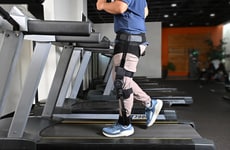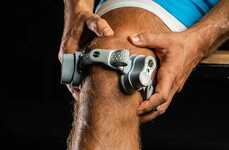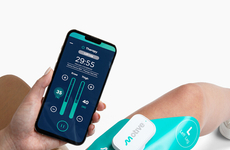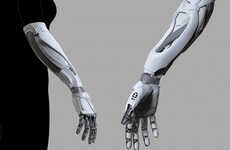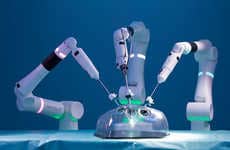
This High-Tech Implant Can Be Used In Place Of Surgery
Rahul Kalvapalle — January 30, 2019 — Tech
References: binghamton.edu & eurekalert.org
A group of scientists over at Binghamton University, Stony Brook University and the University of Western Ontario have collaborated in a successful effort to create an artificial knee that is designed to make it possible for people who would typically get an artificial knee joint to evade surgery altogether.
This artificial knee comes embedded with an array of sensors that are more than capable of monitoring the pressure being exerted on the knee joint during different activities, before conveying the relevant information to doctors. It comes fitted with an energy-harvesting mechanism, meaning that patients don't have to worry about battery replacements.
Ultimately, this artificial knee is an example of how medical innovations can help to increase comfort for patients as well as reduce the reliance on surgery.
This artificial knee comes embedded with an array of sensors that are more than capable of monitoring the pressure being exerted on the knee joint during different activities, before conveying the relevant information to doctors. It comes fitted with an energy-harvesting mechanism, meaning that patients don't have to worry about battery replacements.
Ultimately, this artificial knee is an example of how medical innovations can help to increase comfort for patients as well as reduce the reliance on surgery.
Trend Themes
1. Sensing Technology in Medical Implants - The development of artificial knees embedded with sensors opens up opportunities for sensing technology in other medical implants.
2. Remote Monitoring of Joint Health - The use of sensors in artificial knees allows for remote monitoring of joint health, potentially disrupting the healthcare industry by reducing the need for regular check-ups.
3. Energy Harvesting Mechanisms in Implants - The integration of energy-harvesting mechanisms in artificial knees paves the way for innovative solutions in implantable medical devices that do not require battery replacements.
Industry Implications
1. Medical Devices - The development of intelligent artificial knees presents disruptive innovation opportunities in the medical device industry.
2. Healthcare - The remote monitoring capabilities of artificial knees can disrupt the traditional healthcare model by reducing costs and improving patient care.
3. Surgical Services - The potential to avoid surgery with the use of intelligent artificial knees can disrupt the surgical services industry by offering non-invasive treatment options.
1.1
Score
Popularity
Activity
Freshness


